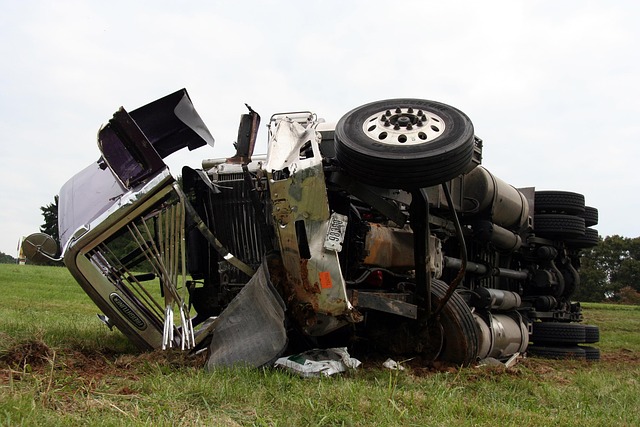Looking to register your car in California? This comprehensive guide breaks down the process step by step. Understanding the state’s requirements for car registration is essential, as is having the right documents ready. Visit your local DMV for a crucial VIN verification—this identifies your vehicle uniquely. We’ll walk you through completing the registration process and highlight the importance of valid insurance and a clean title. By following these steps, you’ll be cruising towards California roads legally and stress-free.
- Understand Requirements for Car Registration in California
- Gather Necessary Documents for Vehicle Registration
- Visit Your Local DMV for Vehicle Identification Number (VIN) Verification
- Complete the Registration Process at DMV: Step-by-Step
- Ensure Your Car's Title and Insurance Are Valid and Up-to-Date
Understand Requirements for Car Registration in California

Before diving into the registration process, it’s crucial to understand the requirements for car registration in California. The California Department of Motor Vehicles (DMV) stipulates specific criteria that vehicle owners must fulfill to register their cars legally. One essential step is to ensure a valid Vehicle Identification Number (VIN) verification. This process involves using a reliable VIN verifier, whether it’s a stationary or mobile vin verifier, to check the vehicle’s history and ensure it meets all safety standards.
A mobile vin verifier can facilitate this inspection by providing on-site VIN checking services, which are particularly convenient for those in remote areas or with limited access to DMV facilities. This step is critical as it helps prevent fraud and ensures that the car you’re registering is safe for road use. Additionally, a thorough vin inspection can reveal previous accidents, outstanding issues, or potential identity theft related to the vehicle’s VIN, safeguarding both you and other drivers on California’s roads.
Gather Necessary Documents for Vehicle Registration

Before you start the registration process, ensure you have all the required documents. The California Department of Motor Vehicles (DMV) will need specific information and proof of ownership to complete the vehicle registration. This typically includes your vehicle’s Vehicle Identification Number (VIN), which can be verified using a DMV VIN verifier or a mobile vin verification app for added convenience.
Gathering these documents beforehand saves time and effort during the registration process. Key documents include a valid title, registration certificate, proof of insurance, and a current emissions test (if applicable). Additionally, having a clean driving record and all necessary fees ready will streamline the registration experience at the DMV or through their online portal.
Visit Your Local DMV for Vehicle Identification Number (VIN) Verification

Before you can register your car in California, you’ll need to verify your Vehicle Identification Number (VIN). The best place to do this is at your local Department of Motor Vehicles (DMV) office. They have trained staff who can confirm that the VIN on your vehicle matches the information in their records. This crucial step ensures that your car is legitimate and not a stolen vehicle, which is an essential part of the registration process.
You can expect a simple procedure where a DMV agent will physically inspect your vehicle and check its VIN against their databases. Many DMVs now offer mobile vin verification services, allowing you to complete this step without having to visit in person. This flexibility, along with the standard in-person option, makes it easier than ever to verify your VIN and take the next steps towards registering your new (or used) car in California.
Complete the Registration Process at DMV: Step-by-Step

To complete the registration process for your car in California, you’ll need to visit a DMV office or use their online services. Here’s a step-by-step guide:
1. Gather Required Documents: Bring your vehicle’s title, proof of insurance, and valid identification like a driver’s license. If you’re registering a new car, you might also need the purchase agreement or invoice. For imported vehicles, additional documents could be necessary.
2. Complete the Registration Application: Fill out Form DMV-140 (Vehicle Registration Application). This form requires details about your vehicle, including its make, model, year, and California vehicle identification number (VIN). You can verify the VIN using a DMV vin verifier or even opt for a mobile vin verification service to ensure accuracy. Once completed, submit the application along with all required documents.
3. Pay Registration Fees: The amount varies based on your vehicle type and age. You can pay online, by check, money order, or cash at the DMV office. After processing, you’ll receive your California registration cards and a new license plate for your vehicle.
Ensure Your Car's Title and Insurance Are Valid and Up-to-Date

Before registering your car in California, it’s crucial to ensure that both your vehicle’s title and insurance are valid and up-to-date. The California Department of Motor Vehicles (DMV) requires a current and clear vehicle title as proof of ownership during the registration process. Make sure the title is free from any liens or outstanding issues.
Additionally, you’ll need active auto insurance that meets the state’s minimum liability requirements. You can verify your policy through a mobile vin verification or conduct a VIN inspection to ensure it’s valid. The DMV recommends using their official tools, like the online vehicle registration system or the Vehicle Identification Number (VIN) verifier, to streamline the process and avoid any potential issues during car registration in California.
Registering a car in California is a straightforward process, but it requires careful preparation. By understanding the state’s requirements, gathering all necessary documents, and ensuring your vehicle’s title and insurance are up-to-date, you can efficiently navigate the registration process at your local DMV. Remember to take advantage of the dmv vin verifier service for accurate and swift verification. With these steps completed, you’ll be on your way to legal and secure car ownership in California.
